SONGS ABOUT THE MOON
SONGS ABOUT THE MOON
a Sidetracks & Detours collation
introduced by Norman Warwick
It is a hobby I have enjoyed since I first realised it was possible to copy a song off a record, single or album or cd) on to a cassette tape and as pop-loving teenager my first compilations had to carry titles The Beatles Beat, or The Monkees Go Ape or The Byrds In The Sky or worse. The invention of the little Sony Walkmans helped me become a little more selective and sophisticated and as my record collection and artists repertoire grew so did the range of compilation copies I would for anyone and everyone whether they wanted me to or not.
So, dear reader, today I have enough songs about the moon to fill this space (see what I did there?) space / moon ? I should be writing sleeve notes for a living don´t you reckon? Anyway here we go with twenty songs about the moon.
1 A SONG ABOUT THE MOON Paul Simon
If you want to write a song about song-writing follow the instructions, by Paul Simon to be found in our recent post at Songs About A Song About The Moon posted on Sidetracks & Detours on Friday 16th October, as the concluding piece of our five part Paul Simon birthday celebration, all of which is still available in our archives.
.2 FLY ME TO THE MOON Frank Sinatra
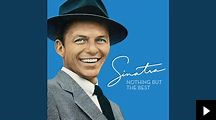
Fly Me To The Moon was a song Sinatra recorded on his definitive Song For Swingin´ Lovers that was directly aimed at his massive following. However, quite apart from providing what became effectively a greatest hits collection for his already massive fan-base, the album continued, for a decade or two at least, to persuade many people of my generation (I´m in my late-sixties) to eventually share the admiration our parents had for Sinatra´s wonderful phraseology that so distanced him from the pack.
However, my mates and I were at the time listening to ´The Beatles and The Byrds and The Beach Boys humming´ the soundtrack of our generation, and the release of Songs For Swingin´ Lovers didn´t even blip on our radar. It took us a few years, perhaps, to admit shame-facedly that we had been wrong, and that far from being ´square´, Sinatra could even share a place in the charts with ´our music´.
Fly Me To The Moon, written by Bart Howard, was originally titled as In Other Words, another phrase repeated in its lyric, and was originally recorded in 1954, the year Howard composed the song, by Kaye Ballard, an American Actress, comedienne and singer. Her cut was released on the Decca Hi Fi label, and was categorised as jazz. What my mate Steve Bewick, the presenter of the Hot Biscuits jazz programme on FC Radio would make of that I shudder to think !
It would be another ten years before Sinatra would include the number on his seminal Songs For Swingin´ Lovers, by which time the song had become something more than just a great love song, and had become part of the space age era as America and Russia raced to be the first to the moon, to Mars, to the sun and beyond.
3 BLUE MOON Billie Holiday
Blue Moon is a classic popular song written by Richard Rodgers and Lorenz Hart in 1934. It may be the first instance of the familiar “50s progression” in a popular song and has become a standard ballad. The song was a hit twice in 1949 with successful recordings in the U.S. by Billy Eckstine and Mel Tormé. In 1961, Blue Moon became an international number-one hit for the doo-wop group The Marcels, on the Billboard 100 chart and in the UK Singles chart. Over the years, “Blue Moon” has been covered by various artists, including versions by Frank Sinatra, Elvis Presley, Sam Cooke, The Platters, The Mavericks, Dean Martin, Yvonne De Carlo, for Masterseal Records 1957, The Supremes, Cyndi Lauper, Bob Dylan and Rod Stewart. Bing Crosby included the song in a medley on his album On the Happy Side. Cowboy Junkies recorded the song on their album The Trinity Sessions. It is also the anthem of English Football League club Crewe Alexandra and English Premier League football club Manchester City, who have both adapted the song slightly.
4 MOONLIGHT SERENADE Glen Miller
Alton Glenn Miller was an American big-band trombonist, arranger, composer, and bandleader in the swing era. He was the best-selling recording artist from 1939 to 1942, leading one of the best-known big bands. Miller’s recordings also include In The Mood, Pennsylvania 6-5000, Chattanooga Choo Choo, A String of Pearls, At Last, Kalamazoo, American Patrol, Tuxedo Junction, Elmer’s Tune, and Little Brown Jug. In just four years Glenn Miller scored 16 number-one records and 69 top ten hits—more than Elvis Presley and the Beatles did in their careers.
Although Miller died somewhat mysteriously in a plane crash but left a huge legacy of which Moonlight Serenade is a classic. Moonlight Serenade is an American swing ballad, composed by Miller with subsequent lyrics by Mitchell Parish.
It was an immediate phenomenon when released in May 1939 as an instrumental arrangement, though it had been adopted and performed as Miller’s signature tune as early as 1938, even before it had been given the name Moonlight Serenade. In 1991, Miller’s recording of the work was inducted into the Grammy Hall of Fame.
5 MOON RIVER Sarah Vaughan
Sarah Lois Vaughan was an American jazz singer. Nicknamed Sassy and The Divine One, she won four Grammy Awards, including the Lifetime Achievement Award. She was given an NEA Jazz Masters Award in 1989. Critic Scott Yanow wrote that she had ´one of the most wondrous voices of the 20th century,´ and BBC 2 listed her as a diva of jazz when broadcasting a programme looking at that genre.
Moon River is a song composed by Henry Mancini with lyrics by Johnny Mercer. It was originally performed by Audrey Hepburn in the 1961 movie Breakfast at Tiffany’s, winning an Academy Award for Best Original Song. The song also won the 1962 Grammy Awards for Record of the Year and Song of the Year.
Sarah Vaughan´s most famous recording, perhaps, was Stormy Weather, a duet with Billie Eckstine.
6 WALKING ON THE MOON Katy Moffatt

In a master class of understatement the Blackwell Guide To Recorded Music says that ´Katy Moffatt is an obscure country music vocal genius´. It seemed for a few years in the eighties and nineties that Katy might step out of that obscurity. In fact, her profile in the UK at that time was quite high and she launched one of her albums at Ronnie Scott´s club in London and played a number of tours promoted by my mates at Stampede Promotions.
Katy is the sister of Hugh Moffatt, also a songwriter who once told me that ´we must intend what we write for light years of travel´, a theme I have revisited on this blog many times.
I was fortunate enough to get to know the beguiling, red headed and charismatic Katy when interviewing her a couple of times during her UK itineraries and from the many of her concerts I was lucky enough to see one of the favourite songs was always her own Walking On The Moon, (not to be confused in anyway with anything by Police). She has recorded duet albums with brother Hugh and with her occasional collaborator, Tom Russell.
7 ONCE IN A VERY BLUE MOON Nanci Griffith
This was the song that, metaphorically, introduced me to the work of Nanci Griffith and was therefore the start of what became, metaphorically, a somewhat stormy relationship. I was actually given a cassette copy by John Stewart, just as it was released, of her debut album. I thought this was the greatest stuff I had ever heard, with this song the greatest of the great. I adored her from afar. She was pretty and witty, wrote wonderful observational songs which she sang in what can only be described in a down-home manner. Why she had to fall out with me I´ll never know. All she had to do was write exactly the kind of songs I love, over and over again, simply by re-hashing her old ones, and always come out on to stage alone with her guitar and sing just to me. However, no matter how much on top of her game she might have been, she was an aspirational artist wanting to take on and conquer other genres and formats. I reviewed one particular concert and am ashamed to this day to say that I pretty much accused her of selling out, and I heard on the grapevine that she had been very angry at what she rightly felt was a not very well thought-out article. I was sure I would get the opportunity to apologise face to face somewhere down the line but I never did, and so have instead taken to occasional apologies in print like this one. Have a listen to this to hear how easy Nanci was to fall in love with, and then play any of her current stuff to realise how wonderful she remains.
8 ARMSTRONG John Stewart
It seems strange to say of a career that saw huge success on the folk floors, on the country circuit and in the pop bubble that it was one dogged by bad luck, but I often think that was the case with John Stewart. Fans of The Kingston Trio seemed not to take strongly to him when, as a young man, he replaced long standing and founding member Dave Guard, despite the fact that the Trio had invited him to do so and that he had already written hit songs in their established repertoire, like Molly Dee. When he eventually left to become a solo performer he arguably became too quickly associated in the public eye with Daydream Believer, a song he gave to The Monkees. A beautiful song it was, too, but perhaps a little more twee than most of his works, and not typical of the country rock sound he seemed to want to create. Then when Armstrong was released it was mischievously misunderstood in some quarters as being a criticism of the cost of the space race. It is, in my opinion, a celebration of the achievement and reading the lyric shows it to be a ying to the yang of Julie Gold´s equally splendid From A Distance. I loved Armstrong so much that I twice recorded it with my band Lendanear, combining it with our own song Doing The Spacewalk before later adding a version of David Bowie´s Space Odyssey to create a three way segue.
9 LOOK AT THAT MOON Victoria Williams
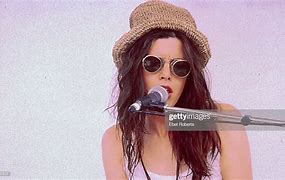
Victoria Williams is an American singer, songwriter and musician, originally from Shreveport, Louisiana, United States, although she has resided in Southern California throughout her musical career. She is noted for her descriptive song-writing talent, which she has used to immerse the listener of her songs into a vivid feeling of small-town, rural Southern upbringing and life. Her best-known songs include Crazy Mary, and Century Plant, and much of her work finds inspiration in nature, everyday objects and the unseen, as in Holy Spirit. Diagnosed with multiple sclerosis in the early 1990s, Victoria was the catalyst for the Sweet Relief Musicians Fund. This song perfectly captures her slightly off-the-wall vocal delivery that helped me acclimatise to a later discovery of the similarly decidedly kookie performances of Debra De Kalaitre.
10 MOONSHADOW Cat Stevens
Yusuf Islam, commonly known by his stage name Cat Stevens, and later Yusuf and eventually Yusuf/Cat Stevens, is a British singer-songwriter and multi-instrumentalist. His musical style consists of folk, pop, rock, and, in his later career, Islamic music. He was inducted into the Rock and Roll Hall of Fame in 2014. As I was only into all things American at the time of his ´hit´ career Cat Stevens was only ever in my peripheral vision and yet I look back at his albums and singles now with far more warmth than I felt for them at the time. I really disliked then, and still do, I Love My Dog but my song-writing partner in Lendanear, Colin Lever, would often burst out (in our supposed song-writing sessions) into tracks like The Frist Cut Is The Deepest, and our occasional partner Pete Benbow so often sang The Boy With Moon And The Stars On His Head that I came to love it so much that many years later I adopted it as a spoken word delivery to generate discussions about create writing about myth and legend..
11 MOONDANCE Van Morrison
Moondance is a song recorded by Northern Irish singer and songwriter Van Morrison and is the title song on his third studio album Moondance (1970). It was written by Morrison, and produced by Morrison and Lewis Merenstein.
Morrison did not release the song as a single until November 1977, seven and a half years after the album was released. It reached the US Billboard Hot 100, charting at number 92. The single’s B-side, Cold Wind In August, had been released in the same year, on his latest album at the time, A Period of Transition.
Moondance is the song that Van Morrison plays most frequently in concert, and although he is a performer who constantly changes the style of a song from concert to concert ot even in mid song during a concert, this is one that invariably has a graceful rise and fall to it, whether performed by Etta James or Michael Buble or any of a score of other artists who have now covered the song.
12 DOING THE SPACEWALK Lendanear
There is, I´m told a city in America that is so good they named it twice, but this is a song so good that Colin Lever and I recorded it in a different version on each of our four albums. The moon is not in the title, as there was an eclipse on night we wrote it (that is not true, of course, but it would have read well in the liner notes!), but it was clear where we were doomed to be lost in space..
13 MAN ON THE MOON REM
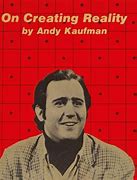
Apparently written for the late, great comedian Andy Kaufman this is a song that carries some of the same sense of wonderment as does Armstrong, and remains my favourite number by the group.
14 HARVEST MOON Neil Young
In an AllMusic Review by Stephen Thomas Erlewine, of the album of which this is the title track I was reminded that it was after 20 years, that Neil Young finally decided to release the sequel to Harvest, his most commercially successful album.
´Harvest Moon´ says the reviewer, ´is in some ways a better album, without the orchestral bombast that stifled some of the songs on the first album and boasting a more diverse overall selection of songs. Harvest Moon manages to be sentimental without being sappy, wistful without being nostalgic. The lovely Unknown Legend, From Hank to Hendrix, and the beautiful Harvest Moon title track are among Young‘s best songs. Only the overlong (11 minutes) and oversimplified Natural Beauty hurts a beautiful album that proudly displays scars, heartaches, and love.´
Personally, I feel the song, Harvest Moon, maybe shows Young The Grunge at his best, redolent of Hello Cowgirls In The Sand and recalling his Crazy horse and Crosby; Stills and Nash offerings.
15 GRAPEFRUIT MOON South Side Johnny
The recording by South Side Johnny And The La Bamba Big Band is my favourite version of a song written by Tom Waits, one of my favourite song-writers.
According to another AllMusic Review, on-line, posted by Mark Deming,Southside Johnny Lyon has been fronting one of America’s most consistently hard-rocking R&B show bands, Southside Johnny & the Asbury Jukes, for well over 30 years, so this album should come as something of a surprise to long-time fans — here Southside sings a dozen tunes from the songbook of Tom Waits alongside a jazzy, full-bodied big band led by Richie “LaBamba” Rosenberg, a long-time fixture in the Asbury Jukes horn section (and a member of Max Weinberg‘s band on Late Night with Conan O’Brien). While this is very much a change of pace, it’s one that both Lyon and Rosenberg handle with confidence and aplomb; Lyon‘s voice shows a touch more grain than it did in his salad days with the Jukes, but his sense of phrasing and showman’s touch is superb, and he brings swagger, heart, and sincerity to every performance here, and when Waits shows up for a duet on “Walk Away,” the two trade lines as if they’ve been singing together for years. ´
Lyon is also a shrewd judge of material, and the dozen numbers here fit his personality and vocal approach like a glove, especially “Please Call Me Baby,” “New Coat of Paint,” and “All the Time in the World.” Rosenberg‘s charts are robust and imaginative, honoring the strength of Waits‘ melodies while giving the songs a chance to stretch out in new directions, and given that a majority of these songs came from the Beefheart-influenced period following Swordfishtrombones, these versions give them a new and very different musical personality steeped in big-band jazz, supper club blues, and classic pop. Is this rock & roll? Not quite, but it’s got a beat, it swings hard, and it boasts a great singer and a great band working their way through a first-class set of songs; Grapefruit Moon is an experiment that succeeds, and hopefully it won’t be too long before Lyon and Rosenberg try something like this again.
16 DRUNK ON THE MOON Tom Waits
This carries happy memories of late night moon-crawls with Gary Hall in his Roundtower days and Ian Johnstone of Stampede Promotions around Preston´s then recently re-gentrified dockland areas. We howled at the moon we three, and the moon howled back. It was a great period in Gary Hall´s career and we were high on his song-writing and his lyricism.
17 SHAME ON THE MOON Rodney Crowell
Shame on The Moon is a song written by Rodney Crowell and first recorded for his eponymous 1981 album. It was subsequently covered by Bob Seger & The Silver Bullet Band, as the lead single from their 1982 album The Distance. Glenn Frey joins Seger on background harmony vocals on the song. Great though that is, Crowell´s remains the best version of his own song and after being a long time member of The Emmylou Harris Hot Band, he went on to enjoy a hugely successful solo career.
18 BAD MOON RISING Credence Clearwater
This, of course, a great sixties chug in a string of chug-a-long CCR hits, though there is, too, a great Tom Jones recording out there somewhere. The group might not have been a happy band, what with John falling out with brother Tom all the time, but their dozen or so hits, perhaps in a category shared only by JJ Cale, deserve to be filed as The Great American Chug-A-Long Songbook.
19 THE SILVERY MOON Doris Day
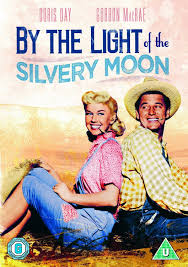
I have known and loved this song all my life, but all my life I have actually known nothing about. A check with my mate Wiki Peadia, though, told me all there is to know.By The Light of the Silvery Moon is a popular song. The music was written by Gus Edwards, and the lyrics by Edward Madden. The song was published in 1909 and first performed on stage by Lillian Lorraine in the Ziegfeld Follies of 1909. It was one of a series of moon-related Tin Pan Alley songs of the era. The song was also used in the short-lived Broadway show Miss Innocence (September 27-October 9, 1909) when it was sung by Frances Farr.
Popular recordings in 1910 were by Billy Murray and The Haydn Quartet; Ada Jones; and The Peerless Quartet.
The song has been used in a great many television shows and motion pictures. A film of the same title was released in 1953, starring Doris Day. It served as a sequel to On Moonlight Bay, in which she had also starred.
20 EVERYONE´S GONE TO THE MOON Jonathan King
We close our playlist on a song that now reminds us that vague political promises made around the Armstrong landing that man would soon be inhabiting the planets now sound like the ravings of a lunatic. For that reason alone, this song sounds, as its production surely intended, eerie and ghostly.
It was swept along by another strange tidal pull years later when the singer of the track (a nationally famous record producer and celebrity at the time) was incarcerated for misbehaviour with young people. For the purpose of this compilation I listened to the song again at a time when at home here on Lanzarote and in my former home in the UK there were recurring spikes of the covid19 virus leading to lockdown. Landscapes around the world were bereft of humans and seemed somehow lifeless, even if those landscapes are likely to endure much longer than might the major species that inhabits them and shapes them.
Everyone’s Gone to the Moon is a song that was written and recorded as the debut single of the British singer-songwriter and record producer Jonathan King. It was released in 1965 while King was still an undergraduate at Cambridge University. Released by Decca Records, it reached No. 4 in the UK, and No. 17 in the US Billboard Hot 100.
Jonathan King is an English singer-songwriter, record producer, music entrepreneur, and former television and radio presenter. King first came to prominence in 1965 when “Everyone’s Gone to the Moon”, a song that he wrote and sang while still an undergraduate, achieved chart success.
The Guardian reported in 2002 that he had sold over 40 million records in his career. As an independent producer, he discovered and named Genesis in 1967, producing their first album From Genesis to Revelation. He founded his own label, UK Records in 1972. He released and produced songs for 10cc and the Bay City Rollers. In the 1970s King became known for hits that he performed and/or produced under different names, including Johnny Reggae, Loop di Love, Sugar, Sugar, It Only Takes a Minute, Hooked on a Feeling and Una Paloma Blanca; between September 1971 and 1972 alone he produced 10 top 30 singles in the UK. Rod Liddle described him as someone who could storm the pop charts at will, under a hundred different disguises.´
However, then came reports that millionaire pop mogul Jonathan King had been arrested for the second time by detectives investigating sex offences.
A police spokesman confirmed that a 55-year-old man was questioned at Staines police station and later released on bail. Mr King, who discovered bands including Genesis and 10cc and enjoyed a string of pop hits, had first been arrested months earlier at his luxury Bayswater home in London.
He then appeared in court charged with two serious sex offences and an indecent assault, following a lengthy investigation by the Serious Sex Offenders Unit of The National Intelligence team. The charges related to three boys, who were aged between 13 and 15 at the time of the alleged attacks over a year from December 1970.
Mr King was born in Godalming, Surrey, and educated at top public school Charterhouse.
During his 15-year career in the music industry, he had a string of bubblegum pop hits during the 1970s.
He wrote his first number one, Everyone’s Gone to the Moon, aged 21, while reading English at Cambridge.
In the 80s he moved into television, devising the show Entertainment USA, which he also presented, and the teenage music programme No Limits. He also dabbled in writing, with a novel and a pop column in The Sun.
In court Mr King denied all the allegations against him, saying they were absurd, but was found guilty and was subsequently sentenced to seven years imprisonment.
That somebody who could write and create such light, frothy and often unforgettable pop music and yet be associated with such dark deeds seems almost inconceivable.
And yet here we are, in 2020, on our way back from a trip to the moon to an earth, that we claim to love but have failed to protect, in dis-array. The musical accompaniment for our journey has been great but even that, like a slowly un-spooling cassette tape in (was it) Apollo 13, seems to have drawn to a sinister and unhelpful conclusion. And I´m sure I just saw the man in the moon shaking his head slowly, as if to ask ´what the hell have you done?´
All selections like this are made pretty subjectively, of course, and I know for sure (because I have done and do) that this should all be put on to an audio device and regularly played on night drives in the car.
Nevertheless, I´m sure there are happier collections of moon music out there, and we´d love to hear them.
Drop us your top ten or top twenty and brief liner notes for each song to normanwarwick55@gmail.com and we´ll publish and attribute if at all possible.
Meanwhile the full Sidetracks & Detours collection is listed in full below.
SONGS ABOUT A SONG ABOUT THE MOON
a Sidetracks & Detours recommendation
A Song About The Moon by Paul Simon
Fly Me To The Moon by Frank Sinatra
Blue Moon by Billie Holliday
Moonlight Serenade by Glen Miller
Moon River by Sarah Vaughan
Walking On The Moon by Katy Moffatt
Once In A Very Blue Moon by Nanci Griffith
Armstrong by John Stewart
Look At That Moon by Victoria Williams
Moonshadow by Cat Stevens
Moondance by Van Morrison
Doing The Spacewalk by Lendanear
Man On The Moon by REM
Harvest Moon bv Neil Young
Grapefruit Moon by South Side Johnny
Drunk On The Moon by Tom Waits
Shame On The Moon by Rodney Crowell
by the light of The Silvery Moon by Doris Day
Bad Moon Rising by Creedence Clearwater Revival
Everyone´s Gone To The Moon by Jonathan King
compiled by Norman Warwick

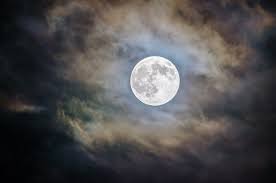


Leave a Reply
Want to join the discussion?Feel free to contribute!